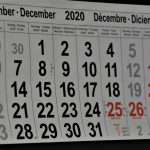In a world where information flows ceaselessly and the written word has become a cornerstone of communication, the challenge of adult illiteracy remains a pressing global issue. Millions of adults around the globe grapple with the inability to read or write effectively, which not only hinders their personal growth but also stymies community development. This article delves into the scope of adult illiteracy, its far-reaching impacts, inspiring stories of those who have triumphed over these challenges, and valuable resources for lifelong learners.
Understanding the Scope of Adult Illiteracy Worldwide
Adult illiteracy is a pervasive issue that affects approximately 773 million adults worldwide, according to UNESCO. This staggering figure highlights the magnitude of the problem, particularly in developing countries where access to education has historically been limited. Many adults missed out on formal schooling due to socio-economic factors, conflicts, or cultural norms that prioritize labor over education. Consequently, this has created a cycle where illiteracy is passed down to future generations, perpetuating the struggle against poverty and lack of opportunity.
Moreover, adult illiteracy is not solely a problem of reading and writing; it also encompasses numeracy skills that are vital for everyday life. Many adults find themselves unable to fill out job applications, read medical prescriptions, or understand financial documents. This lack of essential skills can lead to feelings of helplessness and frustration, significantly impacting their confidence and self-worth. It’s a stark reminder that literacy is not just an educational issue; it’s a matter of dignity and empowerment.
The COVID-19 pandemic further exacerbated the situation, as many educational programs were disrupted, leaving adult learners without resources and support. With millions of adults suddenly out of work, the urgency to address adult illiteracy has never been greater. As we reflect on this global challenge, it’s essential to recognize that literacy is a fundamental human right and a key ingredient for social and economic development.
The Impact of Illiteracy on Personal and Community Growth
The ramifications of illiteracy extend beyond the individual, affecting entire communities and societies. Adults who struggle with reading and writing often find it difficult to secure stable employment, leading to financial instability that ripples through families and neighborhoods. Illiterate individuals may also face barriers to accessing healthcare, resulting in poorer health outcomes that can further strain community resources. This cycle of disadvantage highlights the interconnectedness of literacy, economic prosperity, and social welfare.
On a personal level, the inability to read can lead to feelings of isolation and inadequacy. Many adults express a desire to learn but feel overwhelmed by the prospect of returning to a classroom setting. The shame and stigma associated with illiteracy can deter them from seeking help, creating a barrier to accessing the very resources designed to assist them. This emotional toll can stifle personal aspirations and hinder the pursuit of lifelong learning, which is critical in an ever-evolving world.
Communities that prioritize literacy initiatives often see transformative changes. Programs that engage local volunteers and utilize libraries as learning hubs can foster an environment of support and encouragement. When adults gain literacy skills, they not only enrich their own lives but also contribute to the community’s collective knowledge and resilience. By investing in adult literacy, we can build stronger, more equitable societies where everyone has the opportunity to thrive.
Inspiring Stories of Overcoming Illiteracy Through Reading
Amidst the challenges of adult illiteracy, there are countless inspiring stories of individuals who have found their way to literacy and transformed their lives through reading. Take the story of Maria, a woman from a rural village who, after years of struggling with illiteracy, finally decided to join a local adult education program. With the encouragement of her peers and dedicated instructors, she learned to read and write, eventually discovering a newfound passion for literature. Maria’s journey not only empowered her to pursue new job opportunities but also ignited a desire to share her love of reading with others in her community.
Another powerful example is that of James, who, after facing significant barriers in his youth, returned to school in his thirties. His determination led him to the works of classic authors, which he found relatable and inspiring. Through reading, James not only improved his literacy skills but also became a mentor for other adults facing similar struggles. His story underscores the idea that books can serve as bridges, connecting individuals to new worlds and ideas while fostering a sense of community and belonging.
These narratives highlight the profound impact that reading can have on personal growth and self-discovery. They remind us that literacy is not just about decoding words; it’s about unlocking potential and finding one’s voice. As we celebrate these triumphs, it’s important to recognize the role that accessible reading materials and supportive learning environments play in making these stories possible.
Resources and Strategies for Lifelong Learners Today
In our journey as lifelong learners, it’s crucial to identify resources that can help us navigate the world of reading and literacy. For adults seeking to improve their skills, local libraries are invaluable resources that often provide free access to books, workshops, and literacy programs. Many libraries have dedicated staff who can guide individuals toward suitable materials and learning opportunities, fostering a welcoming environment for all.
Online platforms also offer a wealth of resources for adult learners. Websites like Khan Academy and Coursera provide free courses on reading, writing, and other essential skills. Additionally, mobile apps such as Duolingo and Beelinguapp can make learning fun and interactive, allowing users to practice at their own pace. These tools empower learners to take charge of their education and explore topics that ignite their curiosity.
Finally, connecting with a community can enhance the learning experience. Joining book clubs, attending local readings, or participating in online forums can create a supportive network of fellow readers and learners. Sharing insights, discussing books, and encouraging one another can turn the sometimes daunting journey of literacy into a rewarding and joyful adventure. Embracing a lifelong learning mindset not only enriches our understanding of the world but also empowers us to uplift others on their reading journeys.
The global challenge of adult illiteracy is a multifaceted issue that requires our collective attention and compassion. By understanding its scope, acknowledging its impacts, and celebrating the inspiring stories of those who have overcome these barriers, we can contribute to a more literate and equitable world. Let us continue to support lifelong learners and advocate for accessible resources, so that everyone has the opportunity to read, grow, and thrive. After all, the journey of literacy is not just a personal endeavor; it’s a shared mission to uplift communities and inspire future generations.









